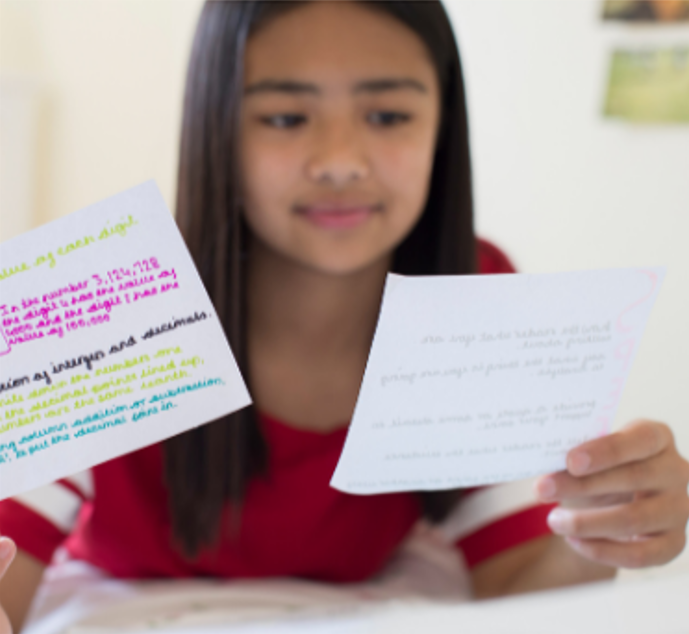Focus, Calm, and Steady Growth at Libra
November brings a quieter kind of determination. The early excitement of autumn has settled, and students begin to navigate the balance between shorter days, increasing academic demands, and the need for healthy routines.
This time of year invites a slower pace, yet it also asks for consistency. Students do not need to accelerate; they simply need to keep showing up with intention.
At Libra, we are proud of how our learners have embraced this rhythm, building habits that strengthen their confidence and independence. November becomes a bridge between two worlds: the reflective calm of autumn and the preparation that leads into the exam season ahead.
A Look Back: Note-Taking and Organisation Workshop
Our first workshop of the year, dedicated to note-taking and organisation, was a genuine success. Students explored a wide range of strategies and realised that the way information is organised matters just as much as the information itself. Together, we reviewed approaches such as Cornell diagrams, colour-coded revision maps, question-based note layouts, and condensed summary sheets.
We also looked at the neuroscience behind these techniques. The act of reorganising information strengthens memory because it creates new pathways that support deeper learning. Well-structured notes also reduce the mental load during revision.
Families can help by asking a simple question this week: “Can you show me the note-taking method that works best for you right now?”
Managing Exam Stress and Exam Anxiety
Our next workshop will address a topic that touches many students at this time of year: exam stress and exam anxiety. We will explain what happens in the brain under pressure, why anxiety narrows attention, and how students can regain cognitive clarity through small, steady steps.
We may also explore time blocking and gentle revision planning, depending on the group’s needs. More importantly, we will introduce tools for managing emotions before and during assessments, such as naming the feeling, micro-breaks, and simple grounding routines.
Parents will also receive guidance on how to create a calm environment that supports focus without increasing pressure. More details on the upcoming parent session will be shared soon.
Reading Corner: Spotlight on Canada
This month, we turn to Canada, a country known for its landscapes, resilience, and rich storytelling traditions.
KS3 Recommendation: The Wild Robot by Peter Brown - a gentle and imaginative tale about growing into new worlds, surviving, and finding unlikely friendships in the wilderness.
KS4–KS5 Recommendation: The Marrow Thieves by Cherie Dimaline - a powerful Indigenous dystopian story exploring identity, survival, and the importance of memory.
Both books offer themes of resilience, reflection, and finding calm in changing seasons.
Building Strength Through Consistency
As we move deeper into the term, students benefit most from routines that help consolidate knowledge and reduce fatigue. Short, focused review periods help information settle more deeply into long-term memory.
Teachers are seeing excellent progress from students who adopt habits such as weekly check-ins, tracking skills, and small self-assessment cycles in each subject.
November is an ideal time to reinforce small, sustainable strategies: spacing out revision, tightening notes and definitions regularly, and practising exam-style questions in short bursts. These habits not only reduce stress later in the year, they also help students build confidence through predictability and repetition.
Parent Corner: Supporting Without Overseeing
Parents often ask how to help their child stay organised as the workload increases. One of the best tools is reflective questioning. Rather than reminders, try asking: “What is your plan for tonight?” or “What part of this feels easy, and what might feel unclear?” These gentle questions encourage ownership and build metacognitive skills.
Creating a quiet, predictable study environment also helps reduce stress. A warm drink, a tidy desk, and a clear plan for when the study session ends can all signal safety to the brain. Students work better when they feel supported, not supervised.
Scaffolding: Building Understanding One Step at a Time
Many students worry when they understand fragments of a concept but cannot yet express the full idea clearly. This is a normal stage in learning across every subject, whether it is a science explanation, a historical argument, or a mathematical process. Mastery rarely appears all at once.
It begins with identifying the essential idea and expressing it in the simplest possible form. Once that foundation is clear, students can add a second piece, then a richer explanation, and gradually build towards a complete, accurate response.
This is the principle of scaffolding. Understanding progresses through small, intentional steps, each one strengthening the brain’s ability to organise and retrieve information.
Perfection is not the starting point. Understanding grows through manageable challenges that reduce cognitive load and support memory. The same is true in sport or music. Watching an expert execute a complex movement does not make us able to copy it. We begin with the basics, build gradually, and refine technique over time.
Scaffolding gives students the confidence to try, adjust, and improve. It is one of the most effective ways to build deep, lasting understanding in any subject.


